70 years ago, Soviet intelligence officer Richard Sorge was executed in Sugamo Prison
Richard Sorge was born on the territory of the Russian Empire 4 in October 1895 in Baku to the family of Gustav Wilhelm Richard Sorge, an engineer from Germany, who was engaged in oil production at the Nobel company working in the Baku fields. Mother Sorge, Nina Stepanovna Kobeleva, was Russian by nationality, came from a simple family of a railway worker. Richard was the fifth, the youngest child in the family. In 1898, the Sorge family moves to permanent residence in Germany, they settle in the suburbs of Berlin.
In October 1914, Richard Sorge volunteered to join the German army. He took part in the battles of the First World War. He managed to make war both on the Western front against France and on the Eastern front against the Russian Empire. Took part in battles from 1914 to 1917 years. Mainly in the field artillery. He was injured three times, especially hard for the third time in April 1917. As a result of the rupture of the projectile, it was badly hit by fragments (one hit on the fingers of the hand, two more on the legs). As a result of this injury, Richard Sorge will become lame for the rest of his life - one leg becomes shorter than the other on 2,5. During World War I he rose to the rank of noncommissioned officer, he was awarded the Iron Cross of the II degree. In January 1918, he was assigned to disability military service.
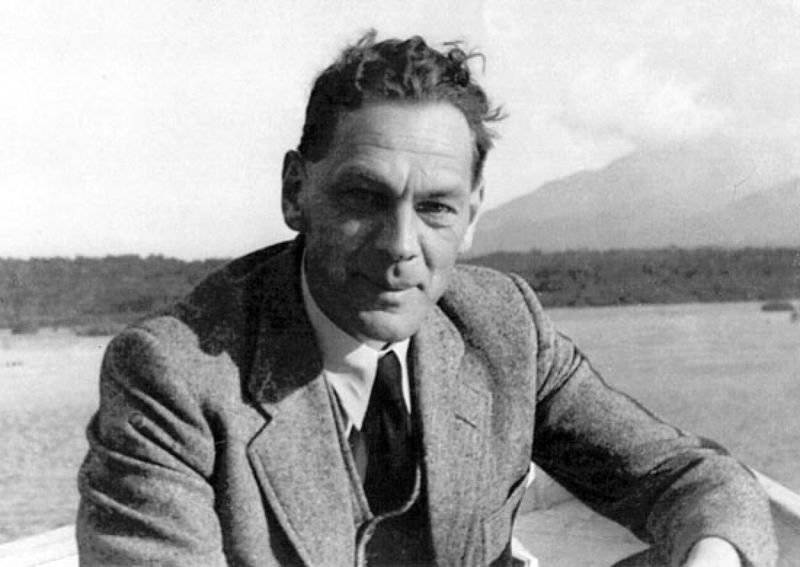
While being treated in hospitals, Richard Sorge became acquainted with the writings of Karl Marx and the young socialists, which determined his whole future life. Over time, he becomes a staunch supporter of the communist movement. Contributed to his spiritual fracture and the events of the First World War, he received injuries at the front. Later he wrote that it was World War that seriously changed his life, and if it had not been, he would not have become a communist.
From 1917 to 1919 years, Sorge was seriously engaged in his education, he received a doctorate degree in state and law, as well as a degree in economics. At the same time, he was engaged in propaganda work and took part in the sailor’s riot in Kiel. Then he began to practice journalism, edited party newspapers. His active party activities led him eventually to the USSR, where he ended up in 1924. Here he was recruited by Soviet foreign intelligence. Approximately 5 years through the Comintern Richard Sorge was transferred to China. In China, his duties included the organization of operational intelligence activities and the creation of a whistleblower network in the country.
The entire first half of the 1930-ies Sorge under the agent's pseudonym Ramsay worked in Shanghai. During the years spent in China under the guise of a "true Aryan" and a German journalist, he managed to give a good account of himself in Nazi circles, in 1933, he joined the NACP. After Japanese troops invaded Manchuria in 1931, the situation in the region radically changed. Japan made a very serious claim to becoming an Asian superpower. This could not help but worry Moscow, the interests of Soviet intelligence were redirected to Japan. In 1933, the head of the intelligence department, Y. K. Berzin, withdraws Sorge from China and gives him a new task - to establish whether there is a possibility of deploying Soviet residency in Japan. Up to this point, none of the Soviet intelligence officers could not permanently gain a foothold in the Land of the Rising Sun.
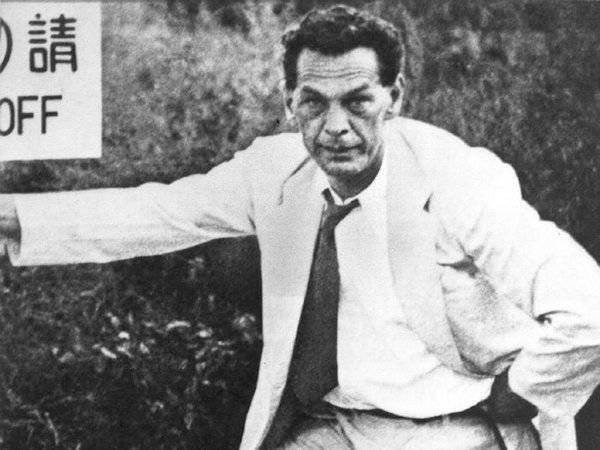
Returning from China, Sorge sent to Germany. In Germany, he made contacts with the Gestapo and the Abwehr, in many ways his older brother, who had become a major businessman by this time, contributed to this. Sorge also manages to obtain accreditation from several large German newspapers. In Tokyo, he went as a correspondent for these publications. Settling in Japan, in just half a year, Richard Sorge becomes one of the most famous journalists in Tokyo. Articles of his authorship are printed in leading magazines and newspapers in Germany, they are discussed even in the highest spheres.
Working in Japan, Sorge gets high fees, but always uses his journalistic talent only as a cover. Comprehensively educated, with knowledge of many foreign languages and excellent manners, he managed to make extensive connections in German circles, including becoming familiar with the German embassy. Gradually, a whole group of secretly co-workers was formed around Sorge who were engaged in sending important intelligence information to Moscow.
In 1935, Max Clausen became the radio operator of the Zorge group, with whom Ramsay was familiar from his joint work in Shanghai. It is noteworthy that the Japanese began to intercept the first radiograms of the group already in 1937, but they could not decipher their content before the arrest of the group members. As the key, Richard Sorge decided to use the statistical yearbooks of the Reich with his usual wit, which allowed the cipher to be widely varied down to infinity.
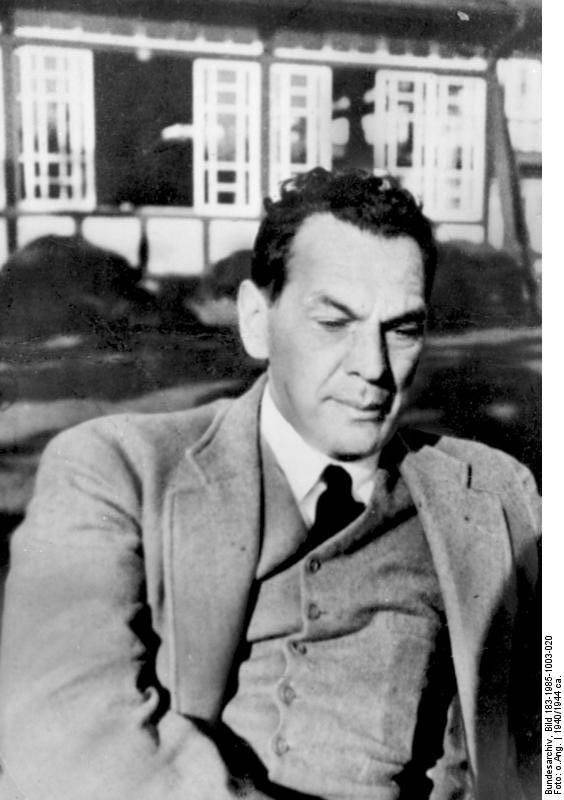
One of the links in the intelligence chain is the Japanese journalist Hozumi Ozaki. Ozaki gave Ramsay a lot of different valuable information. But real good fortune is another valuable source. Sorge manages to make friendship with the German military attache in Tokyo. In order to gain the confidence of Oygen Ott, Richard Sorge, who by that time was well versed in the situation in the Far East, began to supply him with information about the military industry and the armed forces of Japan. As a result, the reports that Otto sent to Berlin were filled with unusual analytical depth, they made a very good impression on the authorities in Berlin.
As a result, Sorge managed to establish friendly relations with Otto, and he often visited the military attache at home, who was a real “find for the spy” because of his peculiarity and discussed various official matters with his friends. At the same time, Richard Sorge was a competent adviser and attentive listener. Over time, when Eugen Ott became the German ambassador to Japan, Sorge was able to get the post of press attaché of the German embassy, which opened the door to receiving information that came directly from Berlin.
For Soviet intelligence, the operation in Japan, codenamed “Millet,” was fairly cheap — only 40 thousand dollars. Given that Sorge was able to recruit 25 people, and Tokyo has always been one of the most expensive cities in the world, the amount is small. This was explained by the fact that all members of the group were well provided for, earning a living from their legal activities.
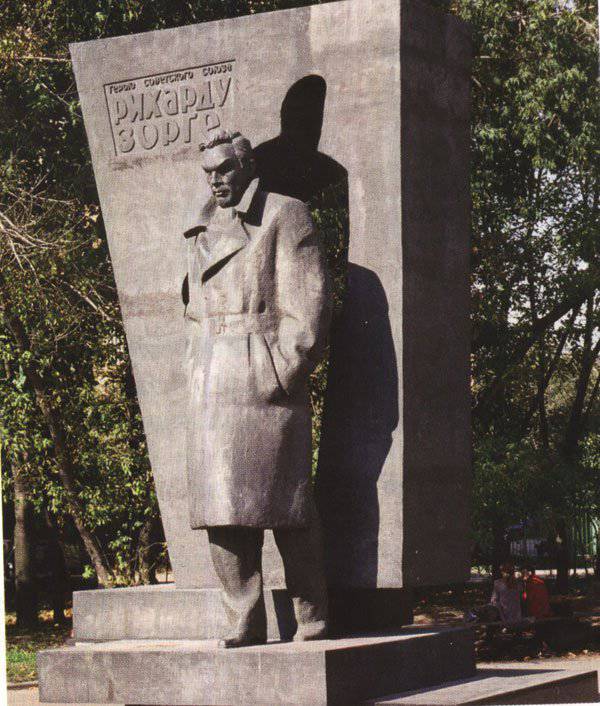
In 1938, the head of the USSR military intelligence, Jan Berzin, was arrested and shot. It is worth noting that it was he who recruited Sorge at the time. Together with Berzin, virtually the entire leadership of the Soviet military intelligence, as well as many agents, was eliminated. Richard Sorge managed to avoid this fate. However, his credibility as an agent in Moscow has fallen. Despite this, Sorge regularly continued to send reconnaissance to Moscow.
It was Richard Sorge who was one of the first Soviet intelligence officers to provide information about the beginning of the military invasion of German troops in the USSR. However, contrary to the common myth, the intelligence officer did not name the exact date of a possible German attack. In 2001, VN Karpov, an employee of the press bureau of the Russian Foreign Intelligence Service of Russia, during a round table held in the Krasnaya Zvezda newspaper, said that Soviet intelligence before the war was able to reveal only German military preparations and approximate terms of the attack. The dates of the attack were different, they passed, but the war did not start. So in the messages that Sorge sent from Tokyo, several possible dates for the start of the war were mentioned. In a recent report on this matter from 20 June 1941, he wrote that, according to the German ambassador to Japan, the war between Germany and the USSR is inevitable, without mentioning a specific date of the invasion.
However, the work of the intelligence network in Japan still bore fruit. In particular, the Soviet intelligence officer reported that Japan would not be able to oppose the USSR until the end of 1941 and at the beginning of 1942. The efforts of the Land of the Rising Sun will be focused on the Pacific theater of operations against the United States. In early October, he conveyed to Moscow information that the military operations of Japan against the United States would begin by the end of the year. With this information, it was much easier for Stalin to remove from the eastern borders of the USSR 26 personnel divisions, fresh and well trained. These divisions said their weighty word near Moscow, preventing the seizure of the capital of the country.
Richard Sorge was arrested in Tokyo on October 18 1941 of the year. First in October 1941, a Japanese intelligence agent was arrested on suspicion of belonging to the Communist Party, one of Ozaki’s subordinates. During interrogations, he mentioned his friend the artist Miyagi, who had found materials compromising him during a search, did not keep himself waiting for the arrest of Ozaki himself, and then of the radio operator Clausen. At the same time, the legendary intelligence officer, who created a large intelligence network, paid insufficient attention to conspiracy. After the arrest, documents that would indicate the conduct of espionage activities were found on everyone, starting with Richard Sorge himself. And Clausen even kept copies of all transmitted radiograms in his house and kept a diary describing the group's activities.
The arrest of Sorge caused a stir not only in the German embassy, but also in Berlin. For a long time, the Germans refused to believe that Sorge was a foreign agent. However, the evidence of espionage presented was quite eloquent (the decoded radiograms of the group and the testimony of its members). As a result, German Ambassador to Japan Eugen Ott was forced to resign. Hitler personally sought the extradition of a Soviet agent from the Japanese authorities, but did not succeed.
In Japan, in the case of the intelligence group Richard Sorge, 35 people were arrested, 17 of them were brought to trial. Court hearings in this case began in May 1943, 29 September of the same year, the main accused in the case were convicted. Sorge and Ozaki were sentenced to death by hanging. 7 November 1944, in the Sugamo prison in Tokyo, the death sentence was carried out.
In the USSR, the name of Richard Sorge remained unknown to the masses up to 1964. The Soviet Union didn’t recognize Sorge as an agent for 20 years, but that year the veil of secrecy was lifted. An article about him was published in Pravda, and on November 5 of the year 1964, he was posthumously awarded the title Hero of the Soviet Union. In the Soviet Union, many streets, schools and even ships were named after an intelligence officer, and there is also a street named after Sorge in Berlin. In addition, special postage stamps with his image were prepared in the USSR and the GDR.
Based on materials from open sources
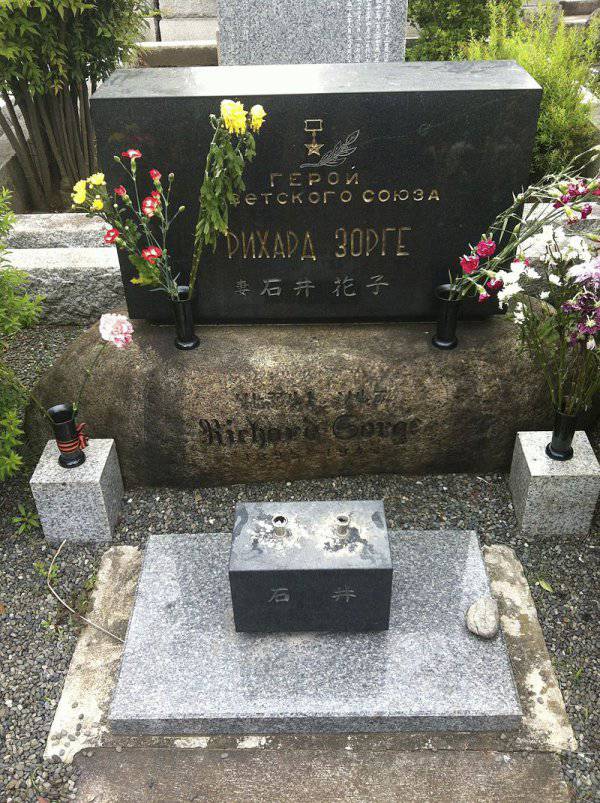
Information